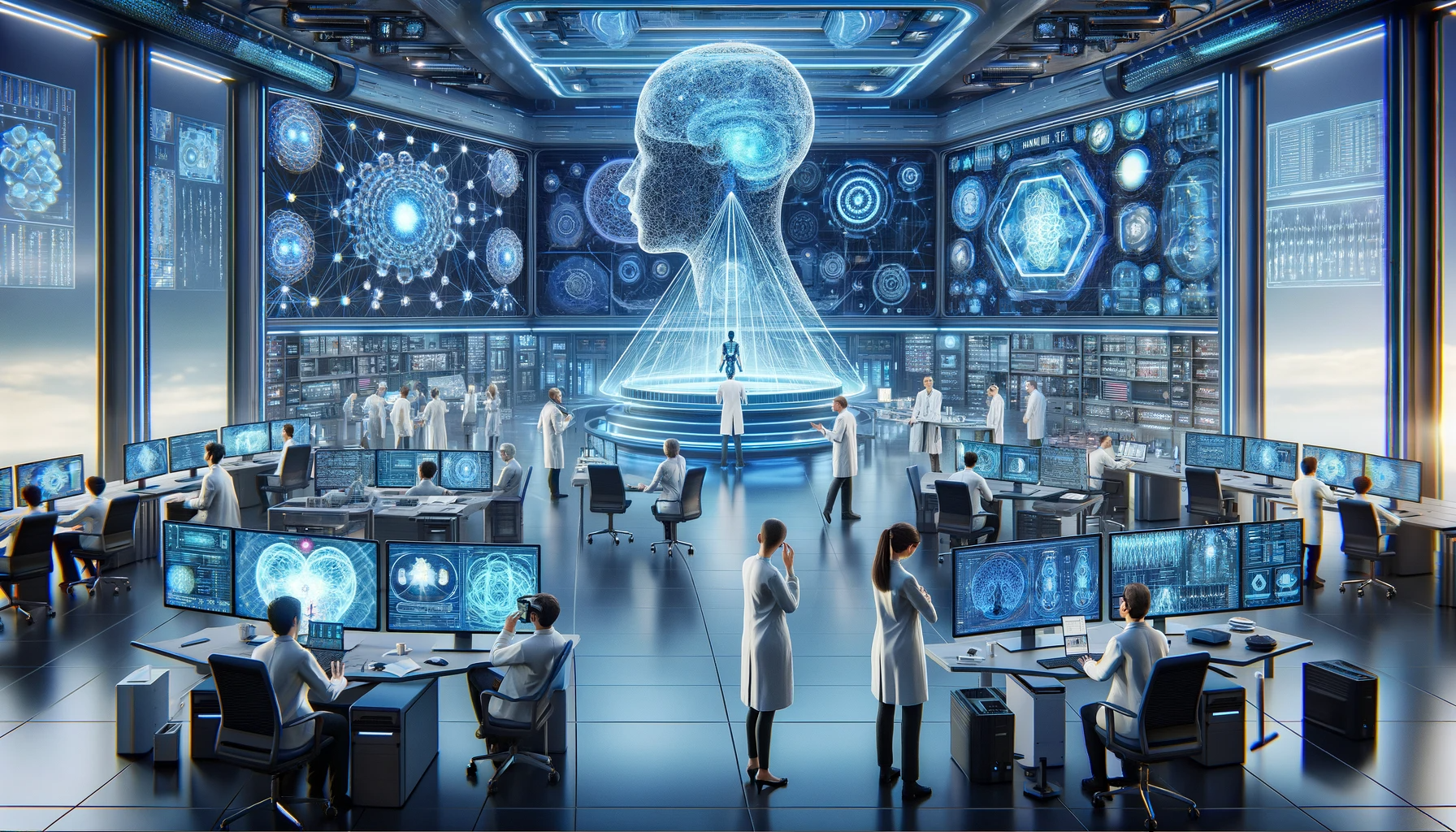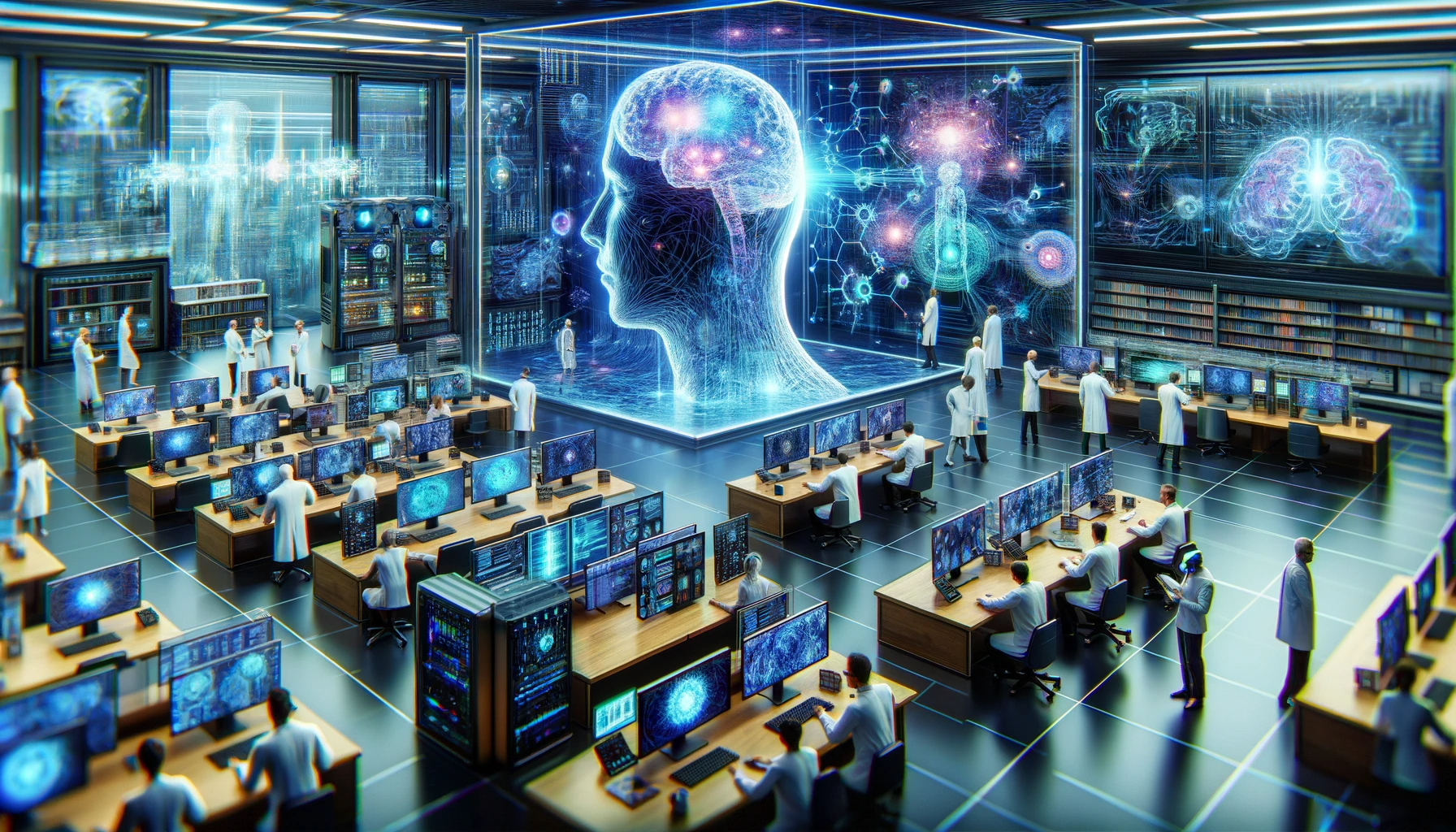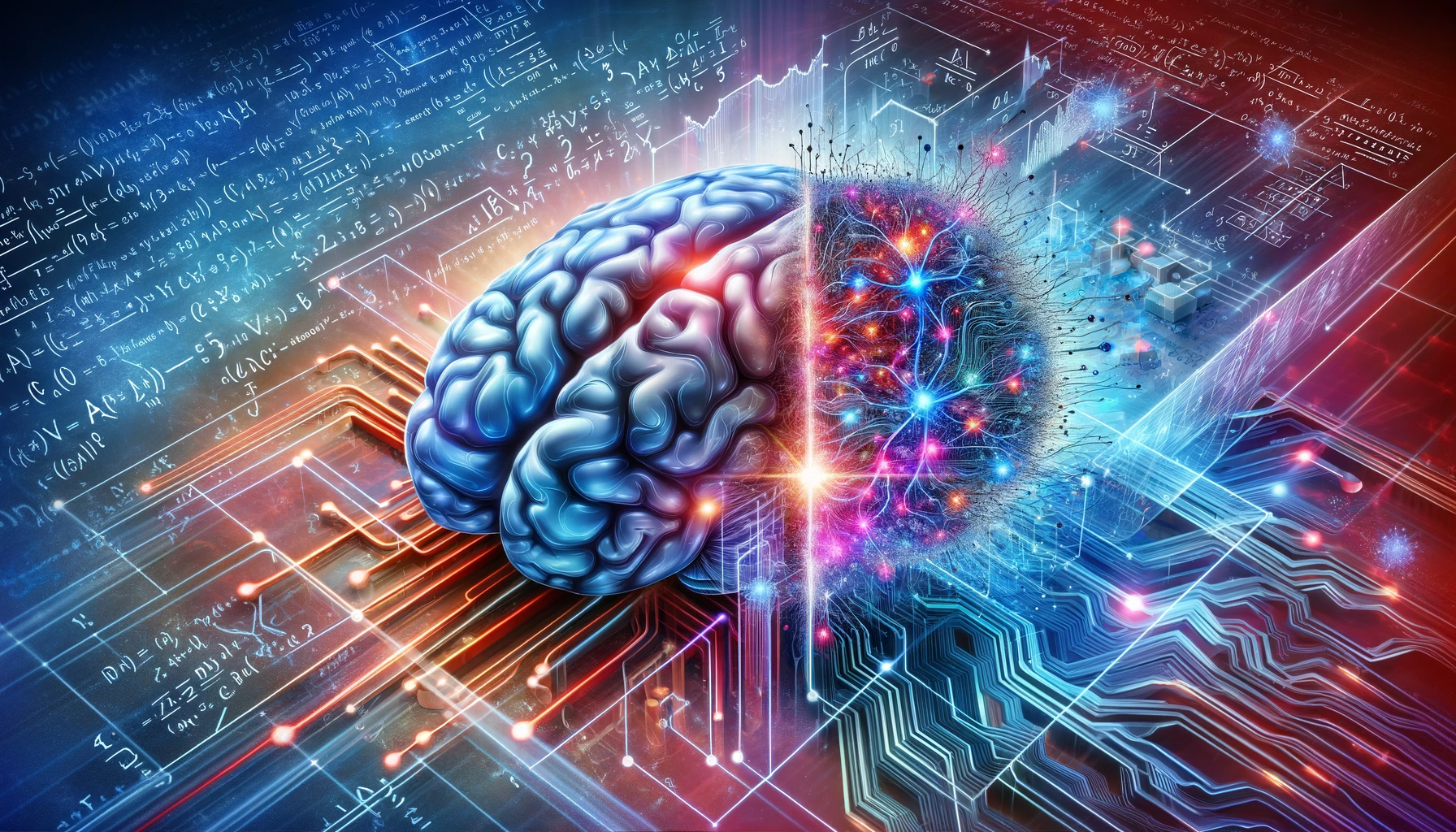Artificial Intelligence (AI) is no longer a futuristic concept confined to science fiction; it has become an integral part of our rapidly evolving technological landscape. In recent years, AI has made remarkable strides, infiltrating various facets of our daily lives. From voice-activated virtual assistants to self-driving cars, AI’s presence is undeniable, and its capabilities are expanding at an astonishing pace.
The central question that looms over this transformative era is whether AI, driven by the relentless march of innovation and machine learning, can surpass the pinnacle of intelligence—human cognition—when it comes to solving intricate, multifaceted problems. As we delve into this inquiry, we find ourselves at the crossroads of possibility and limitation. Can AI truly outperform humans in the realm of complex problem solving, or are there inherent aspects of human intelligence that remain beyond the reach of algorithms and neural networks?
This article embarks on a journey to explore the boundary between artificial and human intelligence. It will trace the evolution of AI, examine the complexities of human problem-solving abilities, and scrutinize the advancements that have propelled AI into the limelight. We will delve into the challenges AI faces in solving complex problems, the potential it holds, and the ethical and societal considerations that accompany its ascent. Ultimately, we aim to decipher whether AI’s ever-advancing capabilities can bridge the chasm to surpass human intelligence in the intricate domain of problem solving.

The Advancements in AI
The journey of Artificial Intelligence (AI) has been one of relentless advancement, marked by significant milestones that have reshaped our technological landscape. It all began with the inception of AI as a concept in the mid-20th century, when pioneers like Alan Turing laid the theoretical groundwork for machine intelligence. Over the decades, AI evolved from basic rule-based systems to more sophisticated machine learning and deep learning models.
Key milestones in AI’s journey include the development of IBM’s Deep Blue, which defeated world chess champion Garry Kasparov in 1997, showcasing AI’s potential in strategic thinking. The emergence of natural language processing (NLP) and speech recognition technologies led to the creation of virtual assistants like Siri and Alexa, transforming human-computer interactions. In recent years, breakthroughs in deep learning, particularly in the field of neural networks, have enabled AI to excel in tasks such as image recognition, natural language understanding, and autonomous driving.
The Complexity of Human Intelligence
Human intelligence is a marvel characterized by its adaptability, creativity, and the ability to tackle multifaceted problems that span various domains. Unlike AI, humans possess the capacity to synthesize knowledge and apply it in novel ways. Human problem-solving often involves drawing from a vast reservoir of experiences, emotions, and cultural context.
One of the distinguishing features of human intelligence is the ability to understand nuance and context. Humans excel in tasks that require emotional intelligence, empathy, and the ability to navigate complex social interactions. Whether it’s solving a puzzle, making strategic decisions, or creating a work of art, humans integrate knowledge from diverse domains and apply it in a holistic manner.
AI vs. Human Problem Solving
Comparing AI and human problem-solving capabilities reveals both the remarkable achievements and inherent limitations of AI. AI has demonstrated prowess in specific domains, such as playing complex games like Go or poker, where it can analyze vast datasets and explore decision trees at incredible speeds. Additionally, AI-driven algorithms have proven invaluable in fields like healthcare diagnostics and financial modeling.
However, AI’s proficiency is often limited to narrow domains, and it struggles when faced with real-world challenges that require a deep understanding of context, emotional intelligence, and creative thinking. Human problem-solving often involves intuitive leaps and the ability to adapt to new situations. AI, on the other hand, relies on patterns and data it has been trained on, making it less flexible in handling novel scenarios.
In the next sections, we will delve deeper into the complexities of AI and human problem-solving, examining instances where AI excels and where it falls short in comparison to human intelligence.
Challenges in AI Problem Solving
While AI has made remarkable strides in various domains, it faces substantial challenges when dealing with complex problems that require nuanced understanding, creativity, and common-sense reasoning. One of the primary challenges lies in context understanding. AI systems often struggle to grasp the subtleties and context of real-world situations. They may misinterpret ambiguous language or fail to consider the broader implications of a problem.
Creativity is another aspect where AI falls short. While AI can generate creative outputs based on patterns in data, it lacks true creative intuition. Human creativity often involves thinking outside the box, making intuitive leaps, and connecting disparate ideas in novel ways. AI’s creative abilities are limited by the data it has been trained on, making it less adaptable in creative problem-solving scenarios.
Common-sense reasoning presents yet another hurdle. Humans possess a vast repository of common-sense knowledge that helps them make judgments and solve problems. AI, on the other hand, struggles with common-sense reasoning, as it relies on statistical patterns in data, which may not always align with common-sense notions.

AI’s Potential in Complex Problem Solving
Despite the challenges, AI has immense potential to excel in complex problem solving, and recent advancements are promising. Natural language processing (NLP) models, such as GPT-3, have shown the ability to understand and generate human-like text, making them valuable for tasks like language translation and content generation. Reinforcement learning has enabled AI systems to master complex games and optimize strategies, as seen in the case of AlphaGo.
Deep neural networks have also played a pivotal role in advancing AI’s problem-solving capabilities. These networks can analyze vast amounts of data, identify patterns, and make predictions, making them valuable in fields like healthcare for disease diagnosis and drug discovery. AI-driven algorithms are increasingly being applied to real-world, multifaceted problems, including climate modeling, urban planning, and disaster response.
Human-AI Collaboration
Human-AI collaboration represents a promising avenue for tackling complex problems. By combining the strengths of both humans and AI, we can achieve solutions that neither could accomplish alone. Humans bring creativity, emotional intelligence, and common-sense reasoning to the table, while AI provides computational power, data analysis capabilities, and pattern recognition.
In various fields, such as scientific research, cybersecurity, and creative arts, we see instances of successful human-AI collaboration. Researchers work alongside AI systems to analyze data, discover patterns, and make groundbreaking discoveries. Cybersecurity experts use AI to detect and mitigate threats, leveraging AI’s ability to process large datasets and identify anomalies. Creative professionals employ AI tools to augment their artistic endeavors, generating music, art, and literature that push the boundaries of creativity.
As we delve deeper into the possibilities of AI and human collaboration, we’ll discover the potential for solving some of the most complex and pressing challenges facing society today.
Ethical and Societal Considerations
As AI continues to play an increasingly prominent role in problem solving, it brings with it a host of ethical considerations. One of the foremost concerns is AI bias. AI systems are trained on historical data, which can contain biases present in society. This bias can manifest in decision-making processes, potentially perpetuating discrimination or unfairness. Ensuring fairness, transparency, and accountability in AI algorithms is paramount to addressing this concern.
Transparency is another vital aspect. As AI systems become more complex, understanding their decision-making processes can be challenging. In fields like healthcare, where AI is used for diagnosis and treatment recommendations, it’s crucial for healthcare providers and patients to have transparency into how decisions are made. Ensuring that AI algorithms are explainable and interpretable is essential to building trust.
The societal implications of AI in complex problem solving are far-reaching. AI-driven decision-making can affect various industries, including finance, law, and healthcare. While AI can optimize processes and improve efficiency, it can also lead to concerns about job displacement and the need for reskilling the workforce.
The Future of AI in Problem Solving
The future of AI in complex problem solving holds tremendous potential. Breakthroughs in AI research continue to push the boundaries of what AI systems can achieve. Advancements in natural language processing, reinforcement learning, and neural network architectures are enabling AI to tackle increasingly complex problems.
One area of exploration is artificial general intelligence (AGI), where AI systems would possess human-level intelligence across multiple domains. While AGI remains a challenging goal, progress in this direction could lead to AI systems that surpass human intelligence in problem-solving capabilities.
The implications of this advancement are significant. Industries such as healthcare could benefit from AI systems that can diagnose complex diseases with unparalleled accuracy. Scientific research could accelerate, with AI assisting in discovering new materials and solving complex equations. However, these advancements also raise ethical and societal questions about control, transparency, and the role of human judgment.

Conclusion
In summary, the question of whether AI can outperform humans in complex problem solving is a complex and evolving one. AI has made remarkable strides and continues to transform various industries, offering solutions to problems that were once considered insurmountable.
However, ethical considerations, transparency, and the societal impact of AI’s growing role cannot be understated. As we move forward, it’s essential to strike a balance between harnessing AI’s problem-solving capabilities and ensuring responsible and ethical AI development.
The future of AI holds immense promise, but it’s crucial to remember that AI is a tool that can augment human intelligence and decision-making rather than replace it entirely. The synergy between human creativity, common-sense reasoning, and AI’s computational power is where the greatest potential lies, offering solutions to the most complex challenges while upholding ethical and societal values.